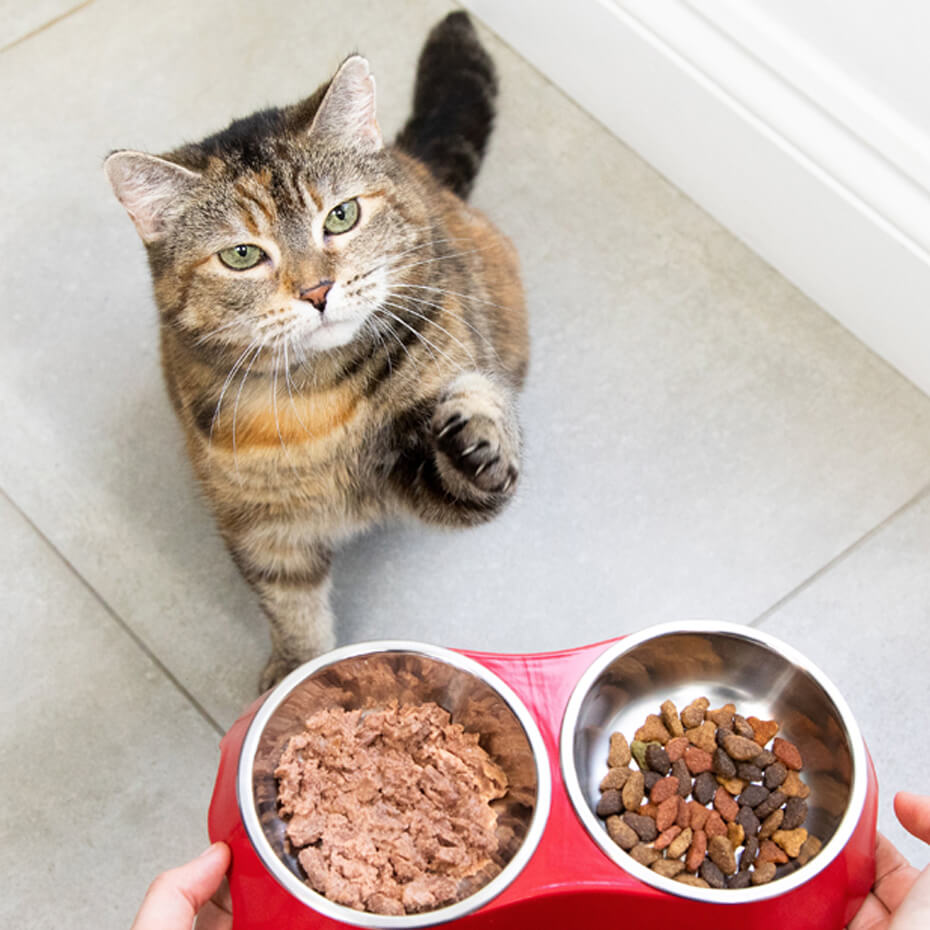
Has your kitten’s biting got out of hand? Here’s what to look out for, and how you can help your cat learn to play appropriately.
Ouch! Some gentle “hand-wrestling” with your kitten suddenly turned from playful to painful! What happened? Why is your kitten biting so hard? The good news is, your kitten is still a kitten, and this is a very common issue. The bad news is, her bites kind of hurt!
Well make sure you’re bandaged up and settled in, because we’re going to take a look at common causes of kittens biting. Just as important, we’ll cover some techniques for how to discourage and even prevent this behaviour.
Instinctively Adorable
At every turn, kittens are learning about their world, mostly by playing with whatever piques their interest. When you see them bat, chase, pounce, and even bite, you’re actually seeing early versions of their hunter instincts. It’s adorable and fascinating to watch, and even more fun to participate! Except for the biting.
Playing with a kitten is clearly a win-win scenario, but it’s best to avoid using your hands or feet as toys. Otherwise, the kitten may accidentally learn that biting human skin is an acceptable behaviour. And two years down the road, as you can imagine, an adult cat could easily leave more of a mark.
Instead of hands and feet, try using pet shop bought or homemade toys you can dangle in front of your kitten or drag along the floor. Moving objects like these are perfect for playtime, and they help kittens learn acceptable ways to use their teeth and claws.
Moulding Young Minds
If you’ve raised a kitten or are currently raising one, you know they can be mischievous, which includes the occasional ambush. But what if her adorable attack comes with a bite?
In this case, a build-up of energy may be the reason why your kitten is biting. Try increasing playtime to keep her busy with desirable behaviours. This early one-on-one interaction is really the best opportunity to teach your growing kitten what is acceptable play and what is not.
Another tip: If you’re planning on adopting a kitten, consider bringing home one or two more. Kittens naturally learn how to control their teeth and claws as they bite and scratch (and ambush) each other.
And finally, if additional playtime and playmates simply aren’t possible, interactive items like puzzle toys and bouncy door hangers are good alternatives.
The Warning
Cat experts often talk about the risk of petting cats until they are “overstimulated,” or beyond the point of enjoyment. Coming from a kitten, it’s just another example of early, instinctive communication. So your kitten’s bite may simply be her way of saying, “Okay! Enough!”
Before the bite, look for signs that she’s feeling irritated. It may be tail twitching, restlessness, dilated pupils, or ear flicking. If you see any of these, take it as a cue to slowly move your hand away and give your kitten room to regain her composure.
Talk to the Doc
No two cats are the same, which also applies to kittens. If you have questions or concerns about your kitten’s biting behaviours, talk to your veterinarian. He or she can help determine what might be causing the behaviour.
In fact, your kitten may be biting because she isn’t feeling well, which is another great reason to ask your veterinarian. Look for any other signs of illness in your kitten, such as loss of appetite, unusually low energy, or sickly-looking eyes. A prominent nictitating membrane (the third eyelid) can be a sign of illness.
Quick Recap
So why is your kitten biting? She may need more appropriate toys to play with, more playtime, less petting, or a visit with your veterinarian. Whatever the cause, it’s most likely something that you can address by taking simple steps to make sure she’s happy, healthy, and learning acceptable play behaviours. Just remember: Your kitten is a great cat in the making, and you can make it happen.


